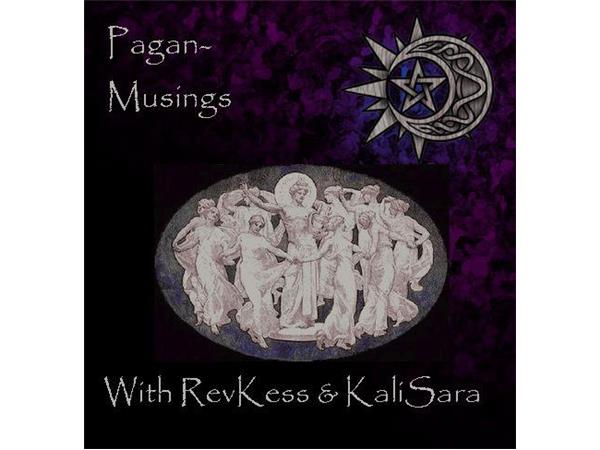Some time ago, I heard a story on NPR’s “This American Life”, about a guy who lost a friend when the friend found out that he had voted for Obama. The friend had called him a “socialist”. Of course, he didn’t think of himself as a socialist, but was left feeling that he had been called a dirty name, without really knowing why it was dirty. This got me thinking about how the terms we use to define others are different from the terms that others use to define themselves. When conservatives call liberals “socialists” and liberals call conservatives “ideologues”, neither side really knows what the other one is talking about, but both sides are left feeling vaguely insulted.
The reason why neither side understands the other is because each side is using a different dichotomy to distinguish “self” from “other”. For the conservative, the dichotomy may be something like democracy-communism, freedom-socialism, or liberty-totalitarianism. For the liberal, the dichotomy may be something like pragmatism-ideology or or social responsibility-big business. But these dichotomies are usually not made explicit, so both sides end up talking past each other. This happens in politics, of course, but it also happens in religious discussions.
A good example of this is how (Neo-)Pagans talk about Christians. It’s not uncommon for Neopagans (myself included) to define the difference between themselves and Christians in terms of a transcendence-immanence dichotomy. According to Neopagans, the Neopagan deity is immanent, while the Christian deity is transcendent. Neopagans will also emphasize their difference from Christians by denying a belief in the “Fall”. In reality, there are probably lots of Christians who experience God as more immanent (i.e., through the Holy Spirit) than transcendent. (The transcendence-immanence paradox is something Christian theologians at least have been wrestling with for hundreds of years, but especially in the last century.) And there are lots of Christians who really don’t believe in the depravity of humankind or the falleness of nature. And while many Neopagans emphasize their earth-centeredness, we certainly do not have a monopoly on care for the earth. But setting aside the issue of whether the transcendence-immanence dichotomy is an accurate way to distinguish Christians and Pagans, what I really find interesting is the fact that probably very few Christians would define themselves primarily in terms of the transcendence of deity. The transcendence-immanence spectrum may or may not be a good way to define Christianity and distinguish it from Paganism, but it is not a common way for Christians to define themselves.
Take another example, from within the Pagan community. I noticed recently how polytheists often distinguish themselves from others within the Pagan community in terms of the poly-mono dichotomy. Polytheists believe in a multiplicity of deities and also often in a multiplicity of “truths”. In contrast, they describe others within the Pagan community as “monists” — those who believe in one ultimate divinity and one ultimate truth. This post by (the recently unPaganed) Star Foster is a good example. It took me a while after reading Star’s post the first time to realize that she was talking about me … well, not me specifically, but the type of Pagan that I identify with. The reason why I didn’t realize who she was talking about right away was because I don’t define myself primarily as a monist. I don’t use the poly-mono dichotomy to distinguish myself from others. Star is correct that many Pagans (including me) technically are philosophical monists, but that’s just not the term we use to describe ourselves. While it makes sense that polytheists like Star would emphasize the poly-mono dichotomy, because that is what is most important to them, unless that dichotomy is made explicit, then it is an impediment to communication.
Or take another term that Star uses to define others within the Pagan community: “atheist”. Here Star defines the “other” Pagans in terms of an theist-atheist dichotomy. While there are some Pagans who would call themselves “atheist” (see “Pagan Atheists: Yes, we exist” by Stifyn Emrys), there are a lot of others who fall into Star’s category who would call themselves “pantheist” or “panentheist” or “nontheist” or other terms. “A-theism” is an important term to Star because her theism is important to her. The problem is that, when Star talks about “atheist Pagans”, many of the people she is talking about are likely to be completely baffled. When I first read Star’s posts, I, like the guy whose friend called him a “socialist”, had the feeling that I had been called a dirty name, but I didn’t know why either “atheist” (or “monist”) is supposed to be dirty. (I think it’s ironic that Star uses the term “atheist” to describe other Pagans in the same way that some Christians use the term “pagan” to describe atheists.)
And lest anyone think that I’m excusing myself here, let’s talk about the term “naturalistic Pagan” which has been adopted by an increasing number of Pagans, including myself. Naturalistic Pagans define themselves in contrast to “supernaturalists”. The funny thing is that the so-called “supernaturalists” do not identify with this term. Over the last year or so, I have been challenged again and again on my assumption that polytheists see their gods as in some way transcendent to nature; but this just is not true of the majority of polytheists. So, when I was talking to people I considered “supernaturalists” and I call myself a “naturalist”, they have no idea what I am talking about. That’s because the so-called “supernaturalists” consider themselves “naturalists” also. It’s very frustrating to tell a “supernaturalist” that you are a “naturalist” and have them respond, “Yeah, me too.” Then the discussion turns to unproductive task trying to explain to someone how they are what you think they are and not what they think they are.
The problem is not just a difference in definitions, it’s a problem of paradigms, where we are using different dichotomies to distinguish self from other. Now I’m not so naive as to suggest that we should stop using these dichotomies to distinguish ourselves from others. Our lives are full of them: male-female, homo-hetero, straight-queer, patriot-terrorist, Christian-immoral person, and so on. The problem is that, whether we realize it or not, these dichotomies are not self-evident. We may choose to define ourselves vis a vis others using any of the dichotomies above, but we should not think that any of these natural opposites. They are social constructs, and they are choices. And we absolutely cannot assume that other people are using the same dichotomies to make sense of their own world.
Let’s be explicit about the dichotomies we use. At let’s acknowledge that the way we distinguish ourselves from another group is likely not the way they distinguish themselves from us. I hope that, in doing so, we might be able to communicate better with those with whom we do not identify. And that is important, because it is the probably those people that we have the most to learn from.











